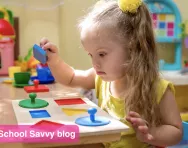Important update from TheSchoolRun
For the past 13 years, TheSchoolRun has been run by a small team of mums working from home, dedicated to providing quality educational resources to primary school parents. Unfortunately, rising supplier costs and falling revenue have made it impossible for us to continue operating, and we’ve had to make the difficult decision to close. The good news: We’ve arranged for another educational provider to take over many of our resources. These will be hosted on a new portal, where the content will be updated and expanded to support your child’s learning.
What this means for subscribers:
- Your subscription is still active, and for now, you can keep using the website as normal — just log in with your usual details to access all our articles and resources*.
- In a few months, all resources will move to the new portal. You’ll continue to have access there until your subscription ends. We’ll send you full details nearer the time.
- As a thank you for your support, we’ll also be sending you 16 primary school eBooks (worth £108.84) to download and keep.
A few changes to be aware of:
- The Learning Journey weekly email has ended, but your child’s plan will still be updated on your dashboard each Monday. Just log in to see the recommended worksheets.
- The 11+ weekly emails have now ended. We sent you all the remaining emails in the series at the end of March — please check your inbox (and spam folder) if you haven’t seen them. You can also follow the full programme here: 11+ Learning Journey.
If you have any questions, please contact us at [email protected]. Thank you for being part of our journey it’s been a privilege to support your family’s learning.
*If you need to reset your password, it will still work as usual. Please check your spam folder if the reset email doesn’t appear in your inbox.
SEND funding crisis: Are children at risk?

The media has been highlighting some big concerns about whether there’s enough money for SEND support in schools, and how the money is currently being spread to support children with special needs.
So, let’s dive into what this means and how we can work together to ensure our children get the support they need.
The big picture: What’s going on with SEND funding?
First off, let’s talk about the current state of SEND funding. As many of you might know, the system is really feeling the pinch. Despite government promises to boost funding, there’s still a significant gap between what our children need and what’s actually available. As a headteacher with years of experience, I see firsthand how this lack of funding affects our most vulnerable students.
How this affects our schools every day
This shortage of funds is putting a real strain on our schools. We often struggle to provide the extra staffing, training and resources necessary to support children with special needs. And this doesn't just affect those with SEND — it impacts all our students. For example, a teaching assistant meant to support the whole class might need to be reassigned to work one-on-one with a child with specific needs, which can leave other students without the support they deserve.
Real-life stories: The faces behind the numbers
The news has been rife with powerful stories of parents fighting tirelessly to secure support for their children, and educators expressing their frustration over the lack of funds. As a headteacher, it’s heartbreaking when we can’t provide the level of care and attention our SEND students deserve. It feels like we're letting them down, despite our best efforts.
Fixing the problem
There are several initiatives aimed at addressing the SEND funding crisis:
- Government promises: The government has promised additional funding, though many argue it still falls short of what is needed.
- Changing the rules: Discussions around policy reforms aim to create a more efficient and equitable distribution of funds.
- Raising our voices: Increased advocacy from parents, educators and organisations is crucial for raising awareness and pushing for change.
How you can make a difference
Families and friends can play a crucial role in advocating for children's needs.
Here are some steps you can take:
- Stay in the loop: Keep up-to-date with the latest news and policy changes regarding SEND funding.
- Team up with schools: Work closely with us to ensure your child receives the best possible support within the current system. We genuinely want to do our best for all children, and nothing frustrates us more than lacking the resources to do this.
- Join the cause: Join local and national advocacy groups to support increased funding and better policies. For instance:
- Family Fund provides grants for families raising disabled or seriously ill children and young people, along with resources and support.
- SEND Community Alliance is a campaign group made up of parents, carers, and professionals who are fighting for better funding and support for children.
- IPSEA provides free and independent legally-based advice to help get the right education for children and young people with special educational needs and disabilities.
Taking action
The crisis in SEND funding is a pressing issue that needs our immediate attention and action. By understanding the challenges and actively participating in advocacy efforts, we can drive the changes needed to ensure every child with special educational needs receives the support they deserve. Let’s continue to raise our voices and work together to create a more inclusive and supportive educational system for all children.
Matt Revill is a primary school headteacher with over 20 years experience of working in schools. He has worked in a range of settings and currently works within a multi-academy trust of 14 schools. In his free time, he enjoys reading, computing, holidaying and spending time with his family and friends. Matt has a son who is currently working his way through A-levels at college.







